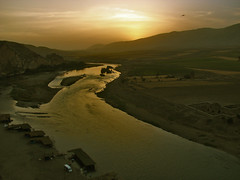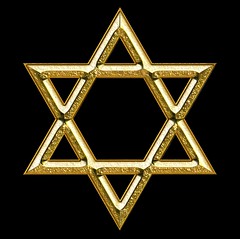| 5227646520 | Analyze | Use your brain and prior knowledge to explain the meaning of pictures, graphs, writing, art, and other sources |  | 0 |
| 5227646516 | Artifact | Remains of things that were man-made |  | 1 |
| 5227646517 | Fossil | Remains of living things (animals/plants) Not man-made |  | 2 |
| 5227719023 | Stone Age | A period of time during which early humans made lasting tools and weapons mainly from stone; the earliest known period of human culture |  | 3 |
| 5227646528 | Paleolithic Age | Also called the "Old Stone Age", were all tools were made out of stone or wood. The word Paleolithic means "Old"(Paleo) "Stone" (Lithic). The Paleolithic Age is considered to be the beginning of when early humans began to use tools which was about 2.5 million years ago |  | 4 |
| 5227646531 | Agricultural Revolution | The change from nomadic hunting and gathering to farming. Start of domestication of animals and plants. The creation of civilizations, religion, division of labor, etc |  | 5 |
| 5227646530 | Agriculture | The practice of farming and the domestication of plants and animals to provide food, wool, and other products |  | 6 |
| 5227646529 | Neolithic Age | Also called the "New Stone Age", where humans learned to domesticate animals and plants for their own use. This lead for humans being able to settle down somewhere instead of traveling in need for resources. Several enhancements were made to human life such as civilizations, division of labor, religion, etc |  | 7 |
| 5227646525 | Hunter-Gatherers | Nomadic groups whose food supply depends on hunting animals and collecting plant foods |  | 8 |
| 5232259523 | Mesopotamia | "The land between two rivers" Land which may civilizations have lived on in the past. People have lived there from 10,000 BCE - 300 BCE. Start of the Neolithic Age. Located on Asia near the Meditteranean Sea, close to Egypt and Saudi Arabia. The reasons people lived there were becuase of fresh water and trade. |  | 9 |
| 5232309530 | Fertile Cresent | The Fertile Crescent is the region in the Middle East which curves, like a quarter-moon shape, from the Persian Gulf, through modern-day southern Iraq, Syria, Lebanon, Jordan, Israel, and northern Egypt. |  | 10 |
| 5232317078 | Ancient Greece | Lasted from 800 BCE - 500 BCE. Created democracy after an invasion from Persians. Their contribution to modern society are art, architecture, sports, city-states, philosophy, and styles of government. |  | 11 |
| 5232361306 | City-States | City-states are cities that govern an area and are not govern by any other people outside of the city |  | 12 |
| 5232372055 | Ancient Rome | Lasted from 753 BCE - 476 BCE(1229 years). They created representative democracy. Located in Italy near the Tiber River at first but then ruled most of Europe because of it's large military, a bit of Asia, and a bit of Northen Africa. Were heavily influenced by the Greeks by Gods, government, art, etc. Their contributions include representative democracy, architecture, religion(Christianity), and art(new perspective). |  | 13 |
| 5232404960 | Trade | The activity or process of buying, selling, or exchanging goods or services. This was essential to civilizations as it was the way civilizations grew. |  | 14 |
| 5232463617 | Mauryan Empire | Lasted from 321 BCE - 185 BCE. Located in India around Ganges River. Had large military. Their contributions include the creation of three new religions. |  | 15 |
| 5232607954 | Han Dynasty | Lasted from 206 BCE - 200 CE. Located in China touching The Pacific Ocean. The biggest enemy was the Roman Empire and had many forms of government. Contributions include the invention of paper and the opening of the Silk Road was probably a big economic success. |  | 16 |
| 5232714914 | Democracy | A type of government ruled by the people. Started in Athens, Greece when citizens started to talk about their concerns. Democracy has three executive branches to keep in check. |  | 17 |
| 5232761705 | Representative Democracy | Representative democracy is ruled by representatives that citizens vote for. Actions are taken from representatives. |  | 18 |
| 5232765023 | Direct Democracy | Direct democracy is when the government is ruled directly from the citizens. Actions are taken by the people. |  | 19 |
| 5232775937 | Aristotle | Aristotle was a Greek philosopher who lived during the fourth century B.C. but whose works have had a strong influence on contemporary ideas about ethics, morality, and politics. He studied at the Academy in Athens, and Plato's ideas influenced him. He did not really like democracy because he thought the social classes would be too distracted to deal with politics. (ex. poor arguing about the rich) |  | 20 |
| 5232778156 | Socrates | Greek philosopher and one of the founders of modern Western thought. We know about him mostly through his student, Plato. He did not agree on on democracy and took that seriously to the grave. |  | 21 |
| 5232778157 | Plato | Philosopher (429 BC-347 BC) who studied under Socrates and questioned reality. He believed that studying ideas and forms held the truth to what is real and wrote the Republic, which described an ideal state with philosopher-kings, warriors, and masses. He also creates the Academy, an ancient school of philosophy. |  | 22 |
| 5232783531 | 5 Basic Values of Democracy | Basic Values: -Social Equality -Majority Rules -Rights for Minorites -Freedom -Integrity | 23 | |
| 5232796826 | Stratification of Social Groups in Mesopotamia | 1)Pharaoh(king) 2)Priest and Nobles 3)Traders, artisans, shopkeepers, and scribes 4)Farmers and herders 5)Unskilled workers and Slaves | 24 | |
| 5232813333 | Abrahamic Religions | Judaism, Christianity, and Islam |  | 25 |
| 5232813334 | Christianity | Religion based on the teachings of Jesus. According to Christian teaching, Jesus is the son of God, placed on Earth to teach people how to live according to God's planactivity space The space within which daily activity occurs |  | 26 |
| 5232815294 | Judaism | Religion with its roots in the teachings of Abraham (from Ur), who is credited with uniting his people to worship only one god. According to Jewish teaching, Abraham and God have a covenant in which the Jews agree to worship only one God, and God agrees to protect his chosen people, the Jews |  | 27 |
| 5232815295 | Islam | A religion based on the teachings of the prophet Mohammed which stresses belief in one god (Allah), Paradise and Hell, and a body of law written in the Quran. Followers are called Muslims. |  | 28 |
| 5232817255 | Hinduism | A religion and philosophy developed in ancient India, characterized by a belief in reincarnation and a supreme being who takes many forms |  | 29 |
| 5232817256 | Patriarchy | a form of social organization in which a male is the family head and title is traced through the male line and women are largely excluded from it. |  | 30 |
| 5232820431 | Caste System | A social structure in which classes are determined by person's birth, wealth, or occupation; traditional division of Hindu society (India) into various categories; there are four classes: brahmin, kshatriya, vaishya, and shudra |  | 31 |
AP World History Unit 2 Flashcards
Primary tabs
Need Help?
We hope your visit has been a productive one. If you're having any problems, or would like to give some feedback, we'd love to hear from you.
For general help, questions, and suggestions, try our dedicated support forums.
If you need to contact the Course-Notes.Org web experience team, please use our contact form.
Need Notes?
While we strive to provide the most comprehensive notes for as many high school textbooks as possible, there are certainly going to be some that we miss. Drop us a note and let us know which textbooks you need. Be sure to include which edition of the textbook you are using! If we see enough demand, we'll do whatever we can to get those notes up on the site for you!

